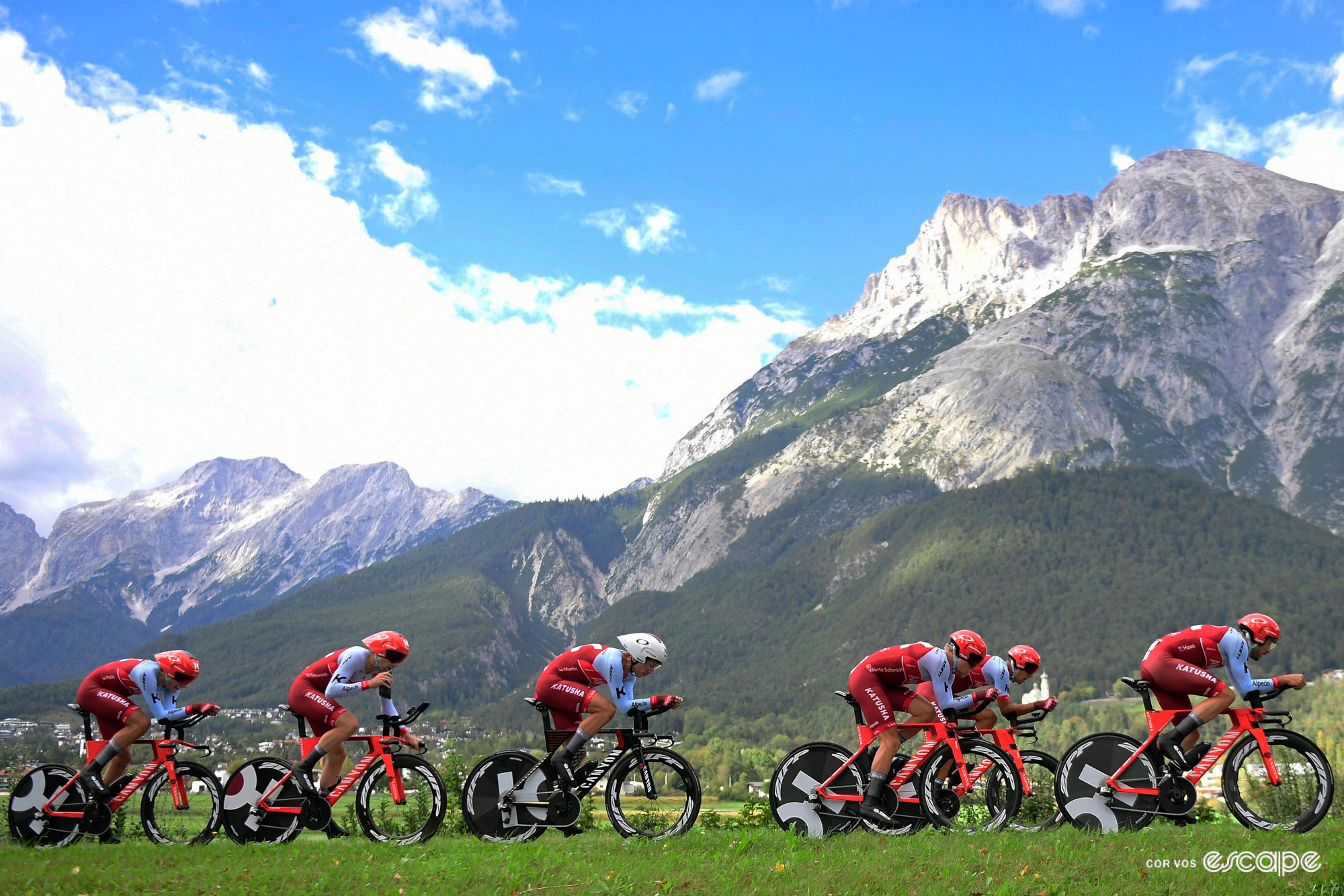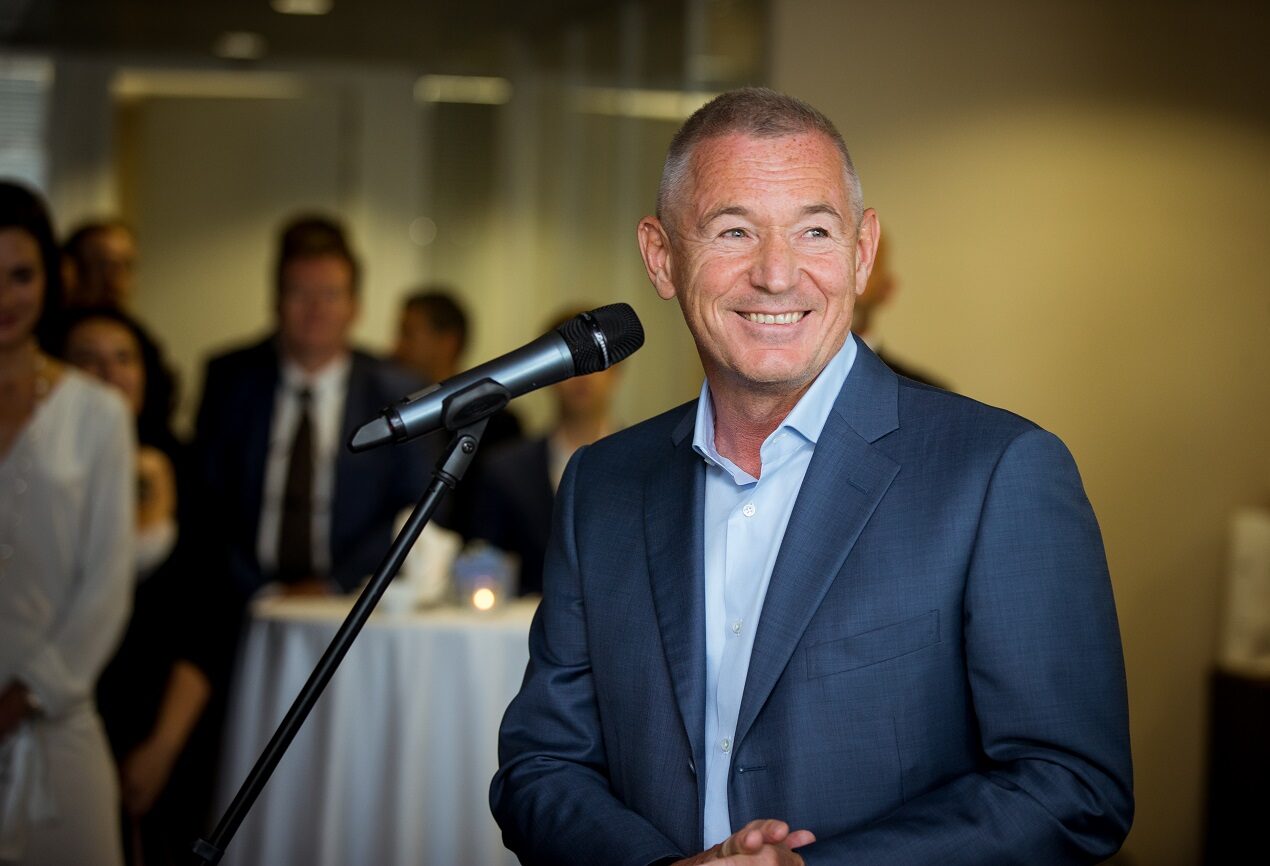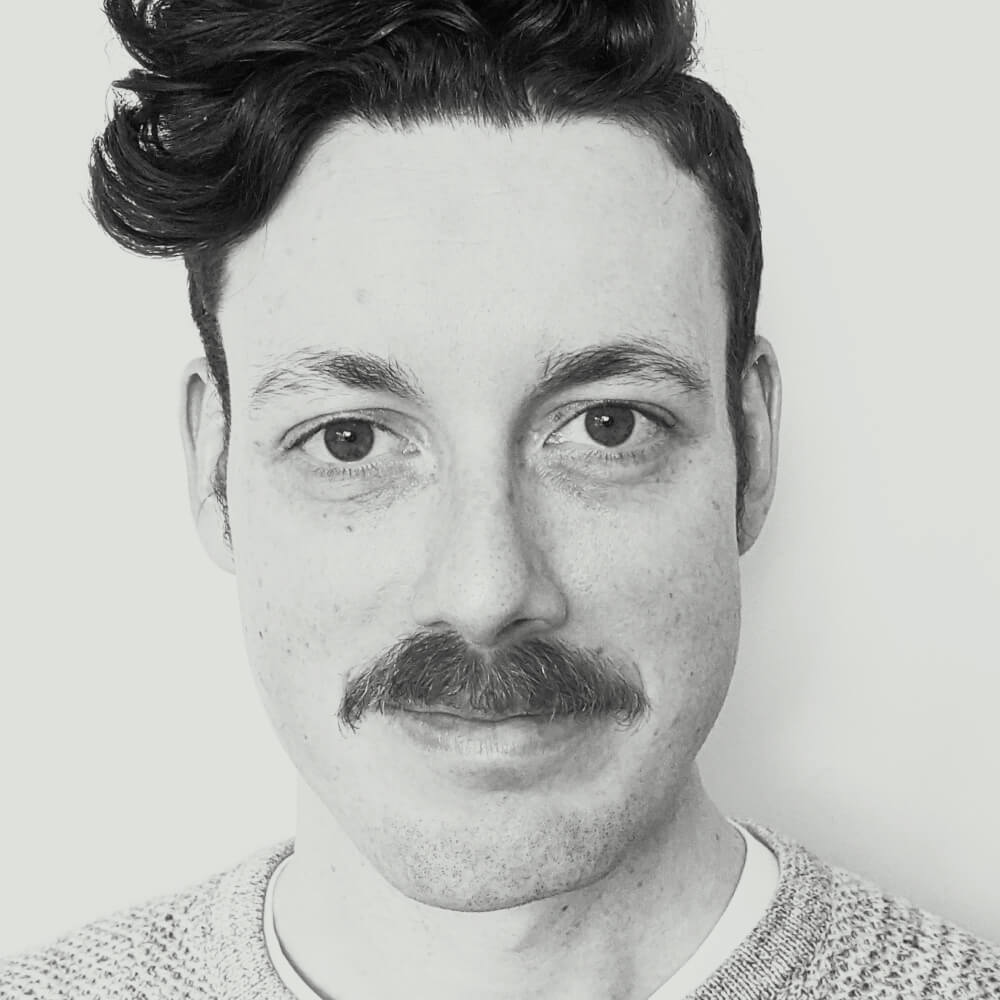Two and a half years since Russia’s illegal invasion of Ukraine, the war and its carnage continues, even if other atrocities and the news cycle have moved on. Across those 900+ days, a new normal has set in – in Russia, in Ukraine – as it has become apparent that there is no quick resolution to be had, just grinding, attritional horrors.
Among those trying to navigate this landscape are the cast of billionaires or associates of Putin’s regime, many of whom have been hit with sanctions from western governments eager to apply pressure to Russia and encourage different choices from the oligarchs. One of these billionaires – cycling powerbroker Igor Makarov, 13-year veteran of the UCI Management Committee and former president of the Russian Cycling Federation – has been a sometimes-contentious figure over the years, but Russia’s invasion of Ukraine brought his position in the UCI under its greatest scrutiny yet. [Representatives of Makarov told Escape Collective that “Mr. Makarov has never supported in any manner Russia’s invasion of Ukraine, nor has Mr. Makarov ever been sanctioned by the US or EU.” They also stressed that Mr Makarov is not an “associate of Putin’s regime.”]
Despite the UCI hosting a group of Ukrainian refugee athletes and a solidarity fund in their support, the organisation was dogged with accusations of double-standards in allowing Makarov to retain his position on the management committee. UCI president David Lappartient has also, at times, been curiously selective with his wording to avoid ruffling feathers.
A group of 12 national federations in the European Cycling Union (UEC) led an unsuccessful push to oust Makarov from that organisation in late 2022, and the apparent hypocrisy of the UCI’s position in keeping him around was further underlined by the piling up of government sanctions against him. Makarov was unable to travel to the 2022 World Championships in Wollongong, Australia, due to being listed on the country’s Autonomous Sanctions (Designated Persons and Entities and Declared Persons—Russia and Ukraine); nor was he able to travel to Glasgow, Scotland for the 2023 edition as he was at the time sanctioned in the UK. He has also been sanctioned in Ukraine, New Zealand and Canada, with the latter describing him as a “close [associate] of the Russian regime” when he was named in a small cohort of individuals (including two of Vladimir Putin’s daughters).

In the time since we last had cause to write about Makarov, there have been a number of prominent changes for the Turkmenistan-born businessman. The sanctions apparently had one of their desired effects: Makarov has renounced his Russian citizenship, formally switching his nationality to Cyprus. [An earlier version of this article referenced a Le Monde report that Makarov acquired his Cypriot passport in 2020 through the country’s “golden passport” program. Representatives of Makarov told Escape Collective this was inaccurate, and that Makarov “first started doing business and living in Cyprus over 30 years ago” and that he “obtained his Cypriot citizenship in 2011”.]
He has also given rare public statements about the sanctions regimes he has been hit with, telling the Associated Press that his yacht has been seized and his two private jets have been grounded, along with “most of his fortune” being frozen. Nonetheless, Makarov said: “I ask the question, what is the meaning of these sanctions against me? What do they achieve? They don’t help Ukraine.”
Mixed fortunes in court
While purging his websites of reference to Russia and apparently going through the process of SEO-juicing his Google search results with weird sponsored content, the now-Cypriot billionaire – who made his fortune in the gas trade between Turkmenistan, Ukraine and Russia – has been challenging his sanctions in several of the territories in which they have been applied, with mixed results.
The successful: in March of this year, a legal team working on behalf of Makarov challenged his sanctions in the UK, removing him from the naughty list. One of Makarov’s lawyers told Escape Collective that they had supplied evidence that “showed clearly that Mr Makarov had, from the 1990s until recently, been a huge supporter of Ukraine and in particular, its energy independence from Russian state-controlled energy companies,” characterising him as a “corporate adversary” of the Russian government who “had been targeted by the Russian regime and forced to sell his company at a significant undervalue in 2013” and had not operated in the Russian energy sector since. [Contrastingly, a spokesperson of Makarov admitted in 2022 that his company Areti “maintains offices in numerous business centers around the world, including Switzerland, Cyprus and Russia,” although “at this time the company is not engaged in any energy or business projects within either Russia or Ukraine”; a 2021 bio that has not yet been scrubbed also touts Makarov’s close ties to Russia].
The less successful: Canada’s sanctions have been a tougher nut to crack. Makarov – whose assets include a substantial stake in the Calgary-based energy corporation, Spartan Delta Corp – applied for a Federal Court review of his Canadian sanctions on the grounds that he has renounced his Russian citizenship. This was briefly successful, before being overturned by the Governor in Council who moved to “close that loophole so as to apply the sanction regulations to former Russian citizens.” Makarov was soon back on the sanctions list, re-applied for his removal, failed again, and in a detailed judgement last month appeared to come to the end of the road.
“In the circumstances, I do not consider the act of renouncing citizenship to be sufficient to demonstrate a genuine effort to distance yourself from the regime. While you claim to be opposed to Russia’s illegal invasion of Ukraine, you have not issued any public statements denouncing the war in Ukraine or President Putin’s regime,” wrote Canada’s minister for foreign affairs Mélanie Joly. Makarov’s dealings in cycling were specifically identified as one of the reasons for not overturning this decision – specifically his relationships with senior officials of the Russian government through the sponsorship of Katusha cycling team (2009-2019) and Makarov’s interactions with Putin while president of the Russian Cycling Federation.
The publication of the Canadian decision sheds some interesting light on Makarov’s stance on the Ukraine war: that he “express[ed] his opposition to the war in Ukraine” but “did so in a confidential submission to the Minister which he tried unsuccessfully to keep from the public record.” In Makarov’s AP interview, he claimed that speaking publicly against Putin was a “pointless” exercise, and said that “I have nothing to do with this Ukrainian tragedy, which I am deeply concerned about. I am against war all over the world.” [Through his representatives, Makarov has previously declined to condemn the war in Ukraine, although in response to this article they said that “Mr. Makarov has never supported in any manner Russia’s invasion of Ukraine.”]
Hedged bets, or painted into a corner?
All of which leaves Makarov in a tricky position: one in which he is opaque in his statements against the Russian aggression, but has renounced his citizenship, one of six Russian billionaires to have done so (including fellow former cycling bigwig, Oleg Tinkov, who has been much more forceful in his comments). There are several co-existing realities: one in which Makarov’s actions are a step toward reclaiming his standing (and wealth) in the western world, one in which they are possibly just self-serving attempts to unfreeze his assets, and one in which those that speak too forcefully against Putin’s regime can fall victim to Sudden Russian Death Syndrome.
More than 900 days after Russia’s unprovoked and illegal invasion of Ukraine, one of cycling’s most influential figures is still there at the top of world cycling – no longer a Turkmen or a Russian, but still almost as enigmatic as ever. The world is moving on, and so is Igor Makarov – albeit with some hurdles still to clear.
Did we do a good job with this story?

